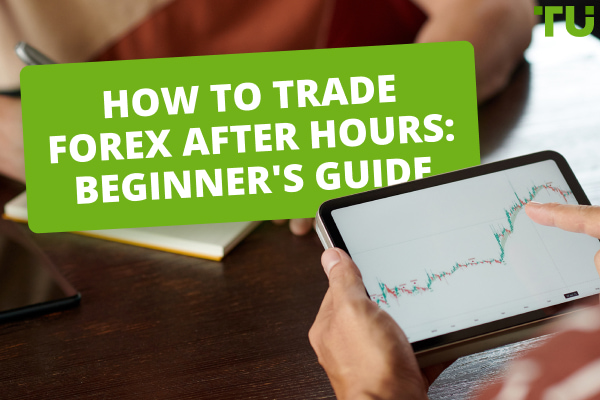What Are the Most Stable Forex Currencies?
Safest currencies in the world are:
-
-
-
-
Norwegian Krone (NOK)
-
Danish Krone (DKK)
-
In a volatile Forex market, many traders seek refuge in safe haven currencies—those with relative stability and low risk. This article explores the concept of safe haven currencies and provides an insightful analysis of the top 10 most stable currencies, helping traders make informed decisions to protect their investments.
Do you want to start trading Forex? Open an account on RoboForex!Top 10 most stable Forex currencies
The rating is derived from a comprehensive assessment of multiple factors, which are analytical recommendations that collectively contribute to the evaluation of each currency's strength. It's important to note that while some less liquid currencies like the Kuwaiti Dinar can indeed exhibit strength due to factors like substantial reserves and sound fiscal policies, they are relatively rare and not as liquid as more widely traded currencies.
Swiss Franc (CHF): The Swiss Franc is considered safe due to Switzerland's long-standing political neutrality, stable economy, and prudent financial regulations. Investors trust the CHF as it historically retains its value during global uncertainties
US Dollar (USD): The US Dollar is a safe haven currency because of the United States' economic dominance, its status as the world's primary reserve currency, and the fact that it's used as a global benchmark. During times of crisis, investors often flock to the USD for its liquidity and stability
Japanese Yen (JPY): The Japanese Yen is viewed as a safe currency due to Japan's low inflation rate, strong economy, and minimal government debt. It tends to appreciate during market turmoil, attracting investors seeking a safe haven
Norwegian Krone (NOK): The Norwegian Krone is considered safe because of Norway's fiscal prudence, its oil wealth, and a stable political environment, making it an attractive option for risk-averse investors
Euro (EUR): The Euro is considered safe despite occasional challenges because of the Eurozone's economic strength and large foreign exchange reserves. It's a preferred choice for stability in the European region. Maybe, you are also interested in interesting facts about trading Euro in the Forex market.
Australian Dollar (AUD): The Australian Dollar is seen as a safe haven due to Australia's robust economy, rich natural resources, and strong financial sector. These factors make it a relatively stable choice for investors
Canadian Dollar (CAD): Canada's strong economy, political stability, and sound banking system contribute to the Canadian Dollar's reputation as a safe currency in Forex markets
Singapore Dollar (SGD): The Singapore Dollar is safe due to Singapore's stable economy, low inflation rate, and stringent fiscal policies. It's often seen as a reliable choice in Asian Forex markets
Hong Kong Dollar (HKD): Despite political uncertainties, the Hong Kong Dollar is perceived as safe due to its peg to the US Dollar, ensuring a level of stability and predictability in its value
Also you can learn a rating of the most valuable currencies in the world, where Kuwaiti dinar, Bahraini dinar and Omani rial are among the leaders.
Is there 100% safe currency?
There is no 100% safe currency. All currencies, even those considered relatively safe, are subject to various risks and uncertainties in the global financial markets. Factors like economic fluctuations, political events, and unexpected crises can impact currency values.
For instance, between 2021 and 2023, the Japanese Yen (JPY) depreciated by approximately 40% against the US Dollar (USD). Such fluctuations can occur due to various factors, including economic events, changes in interest rates, monetary policies, and shifts in global market sentiment. It's essential for investors to recognize that no currency is entirely immune to volatility, and while some currencies may be considered safe havens, they can still face significant fluctuations over time. Diversification and risk management are crucial strategies for mitigating such currency-related risks in investment portfolios.
Therefore, it's essential for investors to diversify their portfolios, use risk management strategies, and avoid the assumption of complete safety when dealing with currencies.
How to diversify my Forex portfolio?
There are two primary methods for achieving diversification: creating a currency basket or investing in currency-based Exchange-Traded Funds (ETFs). Each approach has its benefits and considerations:
Currency basket
Creating a currency basket offers the advantage of customization, enabling traders to select a mix of currencies tailored to their risk tolerance and market outlook. It allows for active management, offering the flexibility to adjust the allocation as market conditions change. However, managing a currency basket can involve higher trading costs, as it requires continuous monitoring and rebalancing. Additionally, constructing an effective basket necessitates a solid understanding of Forex trading and macroeconomic factors.
Forex ETF
Investing in currency-based ETFs provides convenience and diversification benefits. These funds are managed by professionals, reducing the need for individual monitoring and adjustments. ETFs are generally more liquid and accessible for retail investors, making them a practical choice. However, investors should be mindful of management fees that can impact long-term returns. Additionally, ETFs typically follow a passive approach, meaning you have less control over currency selection and allocation, which may not suit those seeking a highly customized portfolio.
What are the best currencies to trade in Forex?
When determining the best currencies to trade in Forex, it's crucial to consider factors like liquidity, market stability, and the availability of market information, especially for beginners. The top currency pairs for novice traders typically include EUR/USD, GBP/USD, and USD/JPY. These pairs are favored due to their high liquidity, relatively stable market conditions, and the wealth of information available.
Best Forex brokers 2024

FAQs
What is the strongest currency in Forex?
The Kuwaiti Dinar (KWD) is recognized as one of the world's strongest currencies due to Kuwait's substantial oil reserves and strong fiscal policies. However, it's not as liquid as major reserve currencies like the US Dollar (USD) or the Euro (EUR), limiting its widespread use in international trade and Forex markets.
Currently, the US Dollar (USD) is often considered one of the strongest liquide currency due to its status as the world's primary reserve currency.
Which currency is best to save money?
The choice of currency for savings depends on various factors, including your financial goals and economic conditions. Historically, stable currencies like the Swiss Franc (CHF) and the US Dollar (USD) have been popular choices. Many investors prefer the basket of currencies or Forex ETFs.
Why is JPY a safe haven currency?
The Japanese Yen (JPY) is considered a safe haven currency because of Japan's stable economy, low inflation, and its historical role as a reliable store of value during times of market turbulence and uncertainty.
Is there absolutely safe currency?
No, there is no absolutely safe currency in Forex or any financial market. Even currencies considered safe havens are not immune to volatility.
Team that worked on the article
Andrey Mastykin is an experienced author, editor, and content strategist who has been with Traders Union since 2020. As an editor, he is meticulous about fact-checking and ensuring the accuracy of all information published on the Traders Union platform. Andrey focuses on educating readers about the potential rewards and risks involved in trading financial markets.
He firmly believes that passive investing is a more suitable strategy for most individuals. Andrey's conservative approach and focus on risk management resonate with many readers, making him a trusted source of financial information.
Dr. BJ Johnson is a PhD in English Language and an editor with over 15 years of experience. He earned his degree in English Language in the U.S and the UK. In 2020, Dr. Johnson joined the Traders Union team. Since then, he has created over 100 exclusive articles and edited over 300 articles of other authors.
The topics he covers include trading signals, cryptocurrencies, Forex brokers, stock brokers, expert advisors, binary options. He has also worked on the ratings of brokers and many other materials.
Dr. BJ Johnson’s motto: It always seems impossible until it’s done. You can do it.
Mirjan Hipolito is a journalist and news editor at Traders Union. She is an expert crypto writer with five years of experience in the financial markets. Her specialties are daily market news, price predictions, and Initial Coin Offerings (ICO). Mirjan is a cryptocurrency and stock trader. This deep understanding of the finance sector allows her to create informative and engaging content that helps readers easily navigate the complexities of the crypto world.










